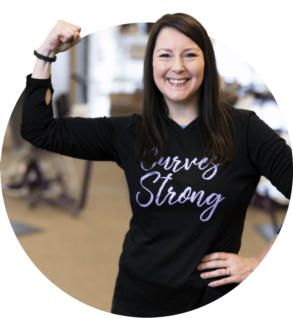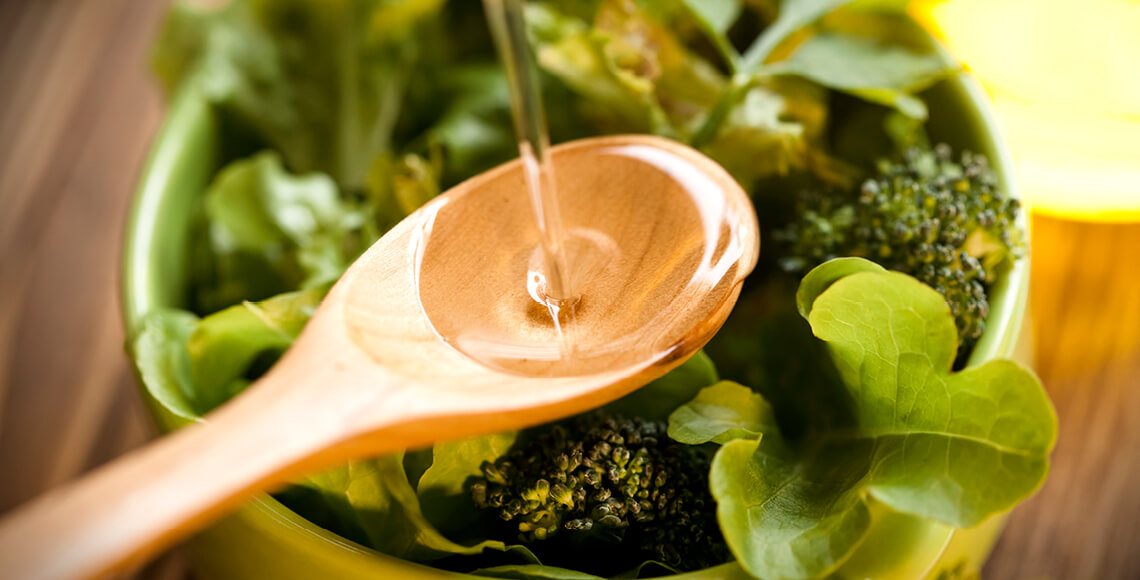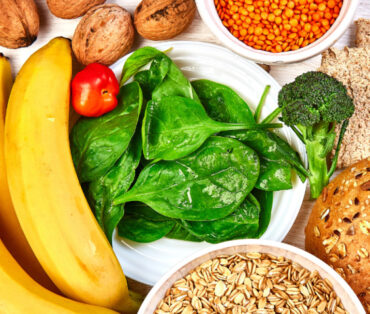The Dermatologist’s Food Formula for Younger Skin
In search of the proverbial fountain of youth, look no further than the foods in your fridge and pantry. Not only can healthy eating help you stay slim, maintain strong muscle and bone, and prevent disease, it can help your skin look younger. Yes, you read that correctly—eat the right foods and you can not only prevent age-related dryness, thinning, and wrinkles, you can reduce those lines, smooth your skin’s texture, and restore moisture, says Patricia Farris, M.D., clinical assistant professor in the department of dermatology at Tulane University.
Younger skin from the inside out
Farris’s healthy eating formula for younger skin? Add foods rich in antioxidants and healthy fats to your diet and reduce sugar and refined carbohydrates.
“Your skin is particularly prone to oxidative stress, which occurs when free radicals—molecules of destruction—form in the skin tissue and do damage to cells and other molecules including collagen (the protein that holds your skin together) and elastin (a protein that gives your skin its elasticity).” explains Farris. “This is a normal part of the ageing process, but when your skin is exposed to UV rays from the sun, oxidative stress goes into overdrive. Those free radicals run rampant, doing all sorts of damage.” By eating a diet rich in vitamin C, you can defend your skin against these radicals and reverse some of the damage, says Farris.
Eat more fruits and veggies
Antioxidants, as their name implies, prevent oxidative stress. Vitamin C is a powerful antioxidant that the body doesn’t produce: so you need to get it through your diet. Your body also uses vitamin C to produce collagen, so include plenty of high vitamin C veggies and fruits in your daily menu. Excellent sources include broccoli, Brussels sprouts, cabbage, cauliflower, green and red capsicums, sweet and white potatoes, tomatoes, spinach and other leafy greens, citrus fruits, berries, kiwifruit, mango, melons, papaya, and pineapple. Fruits and vegetables contain other powerful antioxidants called polyphenols. These compounds give fruits and veggies their colour and help fight off oxidative stress.
Choose healthy fats
Linoleic acid is a polyunsaturated fat that helps skin retain a youthful glow. It prevents dryness and thinning and restores moisture. Vegetable oils, such as canola, corn, sunflower, safflower, and soybean, are excellent sources of linoleic acid. Use them in cooking and in salad dressings. Nuts and seeds also contain rich stores of this polyunsaturated fat. Add them to salads, sprinkle them on cereal, or enjoy them in small portions as snacks (nuts and seeds are high in calories).
Cut back on sugar and refined carbs
“When excess sugar is circulating in your bloodstream, some of it is turned into fat by your liver and the rest binds to other molecules, including the primary proteins of the skin collagen and elastin. This bonding, or glycation, results in new molecules called advanced glycation end products or AGEs—a fitting acronym given that these molecules age the skin,” says Farris. “AGEs that are deposited in the skin make collagen and elastin molecules stiff leaving skin wrinkled and saggy. They also increase your risk for heart disease.”
Farris goes on to warn that glycation is irreversible, so limit sugary treats and beverages and refined carbs to keep sugar from making trouble in the first place. The Australian and New Zealand Dietary Guidelines recommend to limit foods containing added sugar.
In addition, cook with herbs and spices, says Farris, “Rosemary, tarragon, sage, cinnamon, and turmeric can help prevent glycation.”
Pass on nutricosmetics
Grocery store shelves are lined with vitamins to boost your health, and now you can buy supplements to make you look better. Called nutricosmetics, this is a new area in the skincare business, but Farris says, don’t fall for it—at least not yet. “Some have been studied, but not all of them,” she says. “You can’t go to the health food store, pick up one of these products, and be confident that it’s going to work. Keep in mind that supplements are not very tightly regulated—not all of them contain enough of the ingredient that they claim to be effective.”
Whether or not they work says Farris, “I’d rather people eat well than take supplements. Whole foods contain lots of phytonutrients that support good health, and they’re not the same when you take them out and put them in a pill.”








